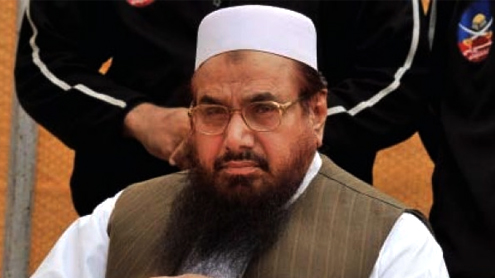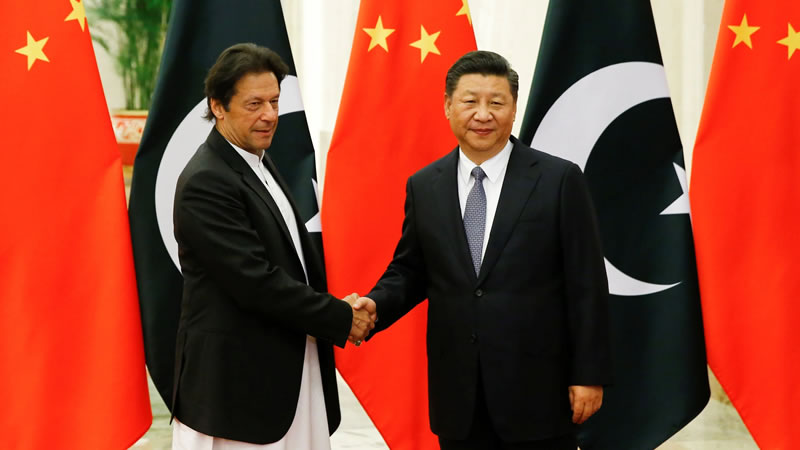 When Washington announced in April a $10 million bounty on the Lahore-based Hafiz Muhammad Saeed, it was aimed at bringing about the jihadist leader’s conviction. He has been the alleged mastermind for the 2008 Mumbai terrorist attacks, leaving more than 160 dead, including six Americans.
When Washington announced in April a $10 million bounty on the Lahore-based Hafiz Muhammad Saeed, it was aimed at bringing about the jihadist leader’s conviction. He has been the alleged mastermind for the 2008 Mumbai terrorist attacks, leaving more than 160 dead, including six Americans.
But the move has gone awry, adding to the tortuous relationship between Washington and Islamabad arising from the deaths of 24 Pakistani soldiers near the Afghan border and closure of supply lines to NATO forces in Afghanistan. The defiance with which Saeed has treated the US threat has highlighted the power of the Pakistani street, an integral part of the country’s politics. At crucial points in Pakistan’s history such as the 1977 general election under the civilian rule of Prime Minister Zulfiqar Ali Bhutto, street power, fueled by Islamic fervour, trumped elected authority, and paved the way for the shift from democracy to military dictatorship.
The electoral system is weighed in favour of feudal lords since a large majority of voters live in villages whereas day-to-day politics are played out in urban areas. In towns and cities, Islamist groups have wide support among the lower middle and working classes, prone to taking to the streets on any issue related to Islam. Little wonder that in the current episode, Saeed has emerged as the epitome of street power, a formidable force that poses an unprecedented challenge to the US. Though a civilian government has been running Pakistan since 2008, its military high command has not abdicated its traditional authority to decide policies concerning national security, an area that covers a vast ground, domestic and foreign. Its Inter-Services Intelligence directorate which plays a vital role in securing or enhancing Pakistan’s internal and external security became the primary tool to execute Islamabad’s crafty policy of making India bleed through “a thousand cuts” in the three-fifths of Kashmir it controls. In turn, the ISI used various non-governmental organisations to implement the official policy.
The provincial Punjab government’s attempts to deactivate Saeed as a political-religious leader have failed due to the judicial verdicts. Twice during 2009 the Lahore High Court released Saeed from house arrest due to lack of evidence. That is why a US State Department spokesman explained that the bounty on Saeed was for evidence that would stand up in court – a tall order as recent events in Pakistan show.
The retreat of the civilian and military power elite in the face of murderous intimidation heartened jihadist leaders like Saeed. Broadening their support base are US drone attacks in Pakistan’s tribal belt adjoining Afghanistan, which are condemned almost universally in Pakistan.
Determined to block the reopening of Pakistan’s land routes into Afghanistan for NATO traffic under any circumstances, Saeed cobbled together an umbrella organisation of 40 political and religious groups under the Difa-e Pakistan Council (DePC), Defence of Pakistan, in December. Its leaders immediately took to addressing rallies in major cities. Their rallies draw huge crowds. Council leaders combine patriotism with religious piety in an environment where a large majority of Pakistanis believe that Washington’s “war on terror” is a war on Islam. The latest opinion survey by the Washington-based Pew Research Center, published in June 2011, shows that 75 per cent of Pakistanis have an unfavourable view of the US, and 68 per cent consider it as “more of a threat.”
The council decried Washington’s bounty on Saeed, calling it “a nefarious attempt” to undermine its drive to safeguard Pakistan’s sovereignty. The Council’s hands have been strengthened by the Parliament’s resolution on April 12, demanding an end to US drone attacks and hot pursuits by US or NATO troops inside Pakistan.
When the Obama administration and Pakistani Prime Minister Yousaf Raza Gilani review mutual relations on the basis of the Pakistani Parliament’s resolution, they will find the shadow of Saeed lurking over them. More than the leading representative of militant jihadism in Pakistan, Saeed has come to epitomise street power. Recent episodes in Pakistan show that when it comes to a crunch, street power trumps electoral authority. The US thus faces a formidable foe in Pakistan whose cooperation it badly needs to withdraw from Afghanistan in an orderly and dignified fashion by 2014. – Khaleejtimes












